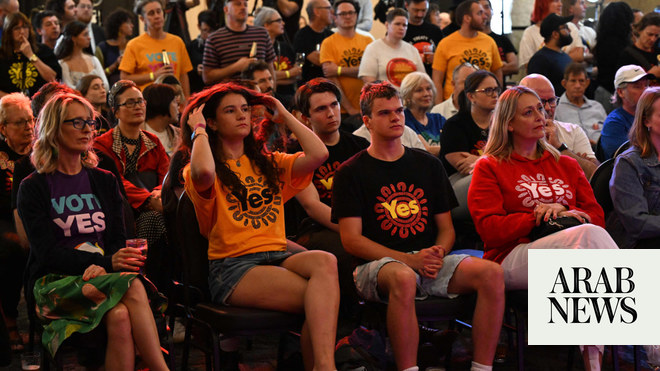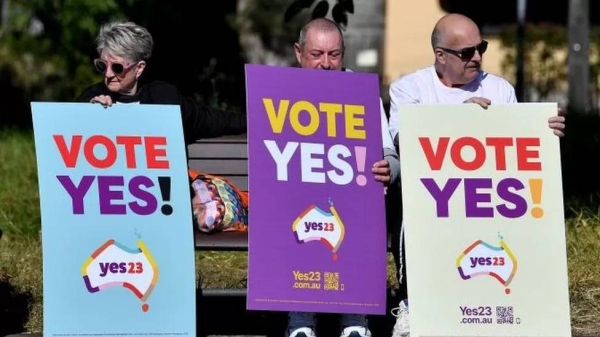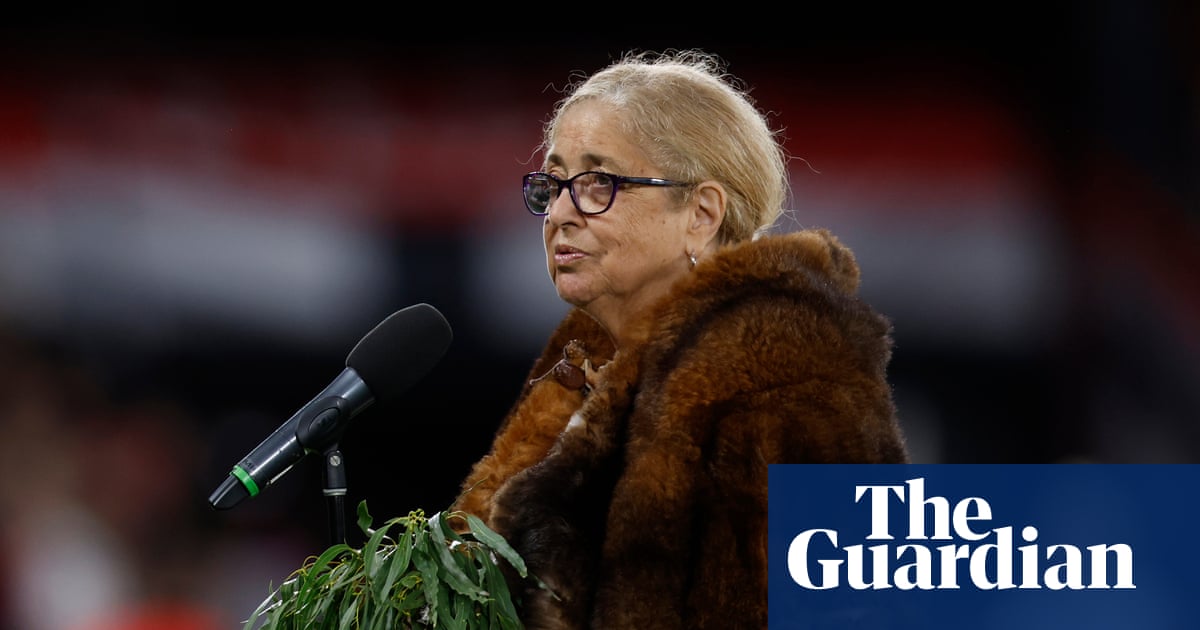
Prime Minister Anthony Albanese acknowledged it was not the outcome he had hoped for but said the country would have to seek a new way forward for reconciliation
SYDNEY: Australia on Saturday decisively rejected a proposal to recognize Indigenous people in the constitution, in a major setback to the country’s efforts for reconciliation with its First Peoples.
Australians had to vote “Yes” or “No” in the referendum, the first in almost a quarter of a century, on the question of whether to alter the constitution to recognize Aboriginal and Torres Strait Island people through the creation of an Indigenous advisory body, the “Voice to Parliament.”
Nationwide, with almost 70 percent of the vote counted, the “No” vote led “Yes” 60 percent to 40 percent. Australian broadcaster ABC and other TV networks have projected that a majority of voters in all six of Australia’s states would vote against altering the 122-year-old constitution.
A successful referendum requires at least four of the six to vote in favor, along with a national majority.
Prime Minister Anthony Albanese acknowledged it was not the outcome he had hoped for but said the country would have to seek a new way forward for reconciliation. “Our nation’s road to reconciliation has often been hard going,” Albanese said in a televised news conference.
“Tonight is not the end of the road and is certainly not the end of our efforts to bring people together.”
Academics and human rights advocates fear the win by the “No” camp could set back reconciliation efforts by years.
The Voice to Parliament was proposed in the Uluru Statement from the Heart, a 2017 document crafted by Indigenous leaders that set out a roadmap for reconciliation with wider Australia.
Australia’s Indigenous citizens, who make up 3.8 percent of the country’s 26 million population, have inhabited the land for about 60,000 years but are not mentioned in the constitution and are, by most socioeconomic measures, the most disadvantaged people in the country.
Supporters of the proposal believed entrenching an Indigenous Voice into the constitution would unite Australia and usher in a new era with its Indigenous people.
Many Indigenous people favored the change, but some said it was a distraction from achieving practical and positive outcomes. The political opposition has criticized the measure, saying it is divisive, would be ineffective, and would slow government decision-making.











